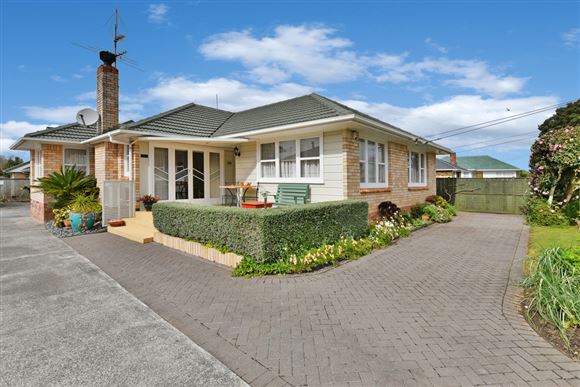Presentation is key to attracting the best price and buyer appeal to the home. Here are a few key aspects that can put a buyer off purchasing a home:
Bad smells.
Prior to your first open home or viewing make sure your house is free of all pet smells, stale cigarette smells, stale food smells, damp smells or anything else that will give a negative first impression.
Clutter.
This is a recurring theme in any list of how to get your property sale ready and it can’t be overstated enough. Make sure all floors, surfaces, cupboards and shelves are free of piles of your own belongings, leaving only organised, purposeful items and one or two ornamental items that elevate the space rather than merely fill it. As well as making the house appear neat, tidy and well looked after, it will also help potential buyers visualise their own furniture and belongings in the property. If your budget allows you may also wish to consider having the property staged with rental furniture designed to appeal to your target market.
Dirt.
The need to clean might seem obvious but it’s worth getting a fresh set of eyes (such as your sales consultant) to let you know what needs work – or even a professional cleaner through the property. They will notice things you may not, but a good place to start is to do a thorough clean of all floors, walls, skirting boards, windows and sills, mirrors and tiles. Cleaning and decluttering also extends to the outside where you should make sure you have cleared any flotsam from the garden. Also make sure the garden is weeded, all mildew is waterblasted from surfaces and the fences and gates are well maintained.
Dampness.
Consider investing in a dehumidifier and give it a good workout before potential buyers view the property. Wipe any signs of mildew from walls, windows and sills. Make sure your bathroom feels light and well-aired.
Vendors on site.
As a rule potential buyers do not want you, the vendor on site during a viewing. It will make them feels as though they are guests in your home, rather than buyers at a viewing. They will feel less free to give the property a good investigation and imagine themselves living there.
Temperature.
It’s a bit of a tough one this as everybody is comfortable with different temperatures but try to avoid your property being too cold or too warm on viewing days. Aim for dry and comfortable.
Source.
Freehold (or fee simple)
Translated as "free from hold" meaning that you own the building and the land it stands on - outright. It allows owners to make changes to their land and homes without the consent of neighbours - without needing to change the title (so long as the changes comply with Council regulations and the Resource Management Act).
Cross lease
You own two interests in the property:
A share of the freehold title in common with the other cross lease holders; and
A leasehold interest in the particular area and building that you occupy.
Typically, each person has an exclusive use area of their garden to the exclusion of all the other owners.
These titles usually have a common portion of the driveway.
Neighbours' consent must be granted (along with council approval) if you want to add on or up to your dwelling.
Leasehold
There is a misconception out there that cross lease titles are lease hold.
A lease hold title is when someone else owns the land, you just purchase an exclusive right to possess the land and the buildings on it for a specific period of time.
There have been many reports in the media about the performance of the property market — more opinion than fact. Over the years you’ve been reading my updates, you know me well enough to know that I like the facts.
There are some key drivers in any property market: employment levels, net migration, crowding, property sale volumes, construction, affordability, rents, and number of days to sell property to name a few. All of these remain at relatively stable levels.
The first home buyer market is certainly buoyant (new mortgage registrations rose from 24.8% to 26.4% last month) with lenders easing up on restrictions along with attractive interest rates — with no predictions of tightening anytime soon.
Changes to LVR's
The RBNZ Financial Stability Report released on Wednesday the RB noted the slowing in mortgage lending growth and house price inflation. In response they have cut the minimum deposit requirement for investors from 35% to 30% (having cut it from 40% a year ago). And banks may now have up to 20% of their lending to owner occupiers at less than 20% deposit. This had been 15% from the earlier 10% percentage of volume limit.
Will these changes affect property values?
Not really. At least, they certainly won’t lead to large rises in house prices, but the changes should bring further stability to the market. Remember when they imposed the changes as the market was rising? They were never to bring house prices down, they were just to slow the growth and stabilise the market. Now it’s the reverse.
The sellers market has passed (2 years ago), but the balanced market environment we are presented with is a healthy one. Values remain relatively stable along with stock levels and sales volumes. I see this property climate remaining similar for a few years yet.



